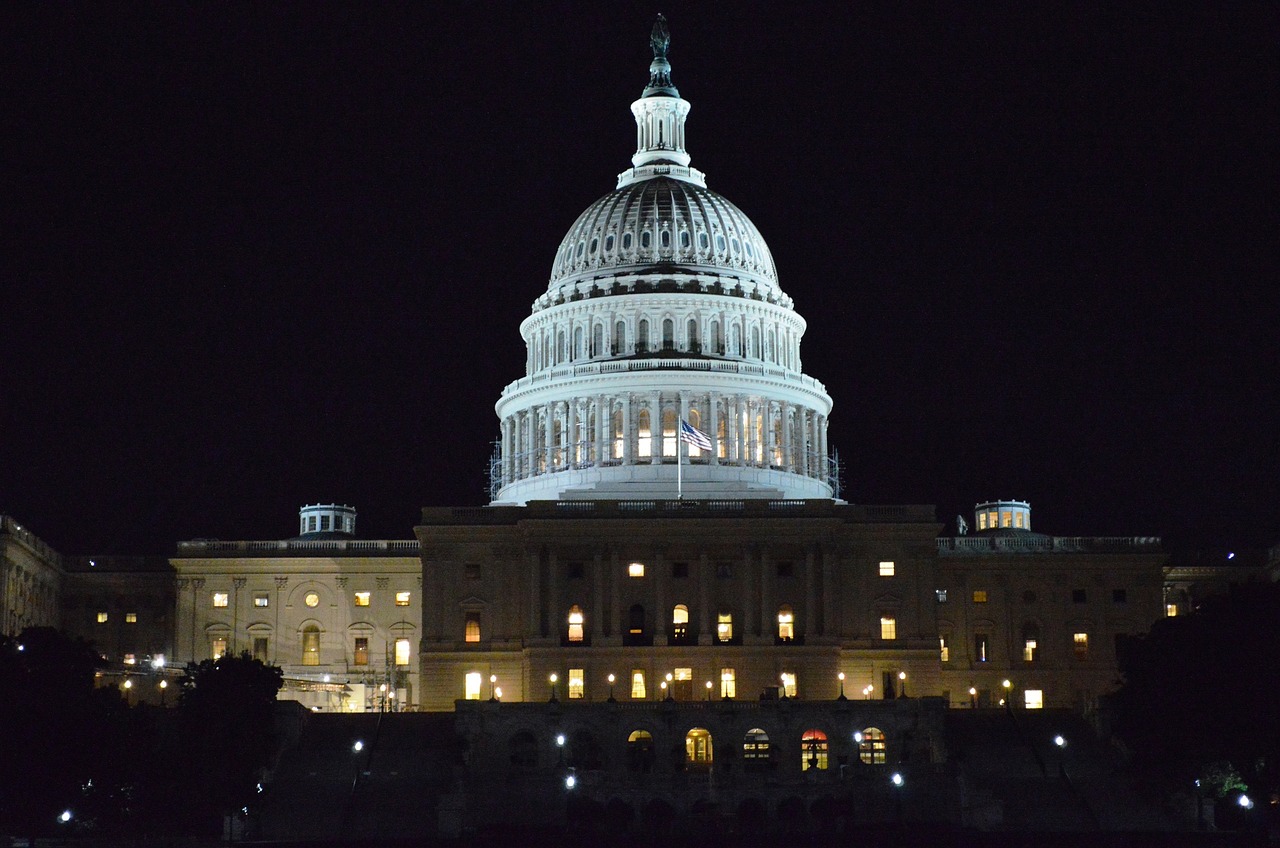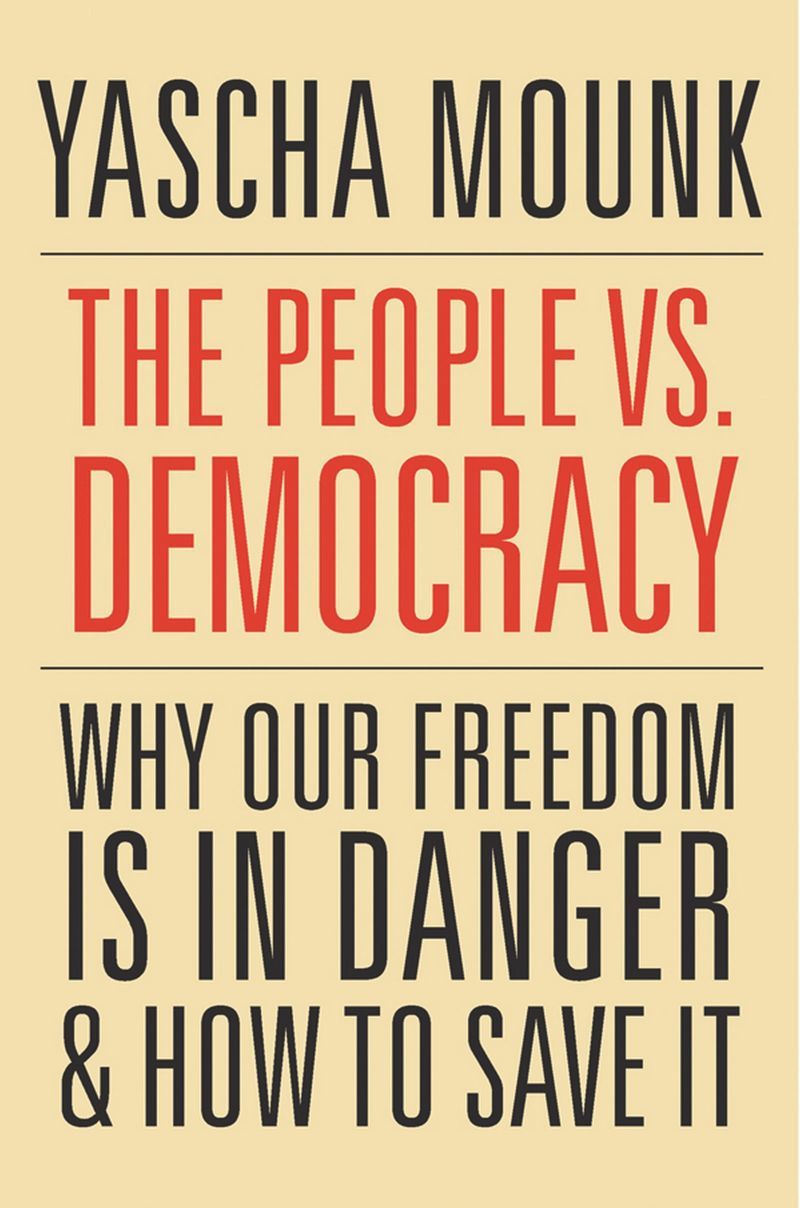Top Stories
Is Democracy Doomed?
Political scientists are now asking themselves the same question about liberal democracy that Schumpeter asked about markets

A review of The People vs. Democracy: Why Our Freedom is in Danger and How to Save it by Yascha Mounk, Harvard University Press (2018), 393 pages
The great Austrian-American political economist Joseph Schumpeter once asked, “[c]an capitalism survive?” He answered this question in the negative, believing that markets undermine themselves because they perform too well. The market’s emphasis on innovation and disruption make it difficult for people to recognize how essential they are to rising standards of living. In Schumpeter’s view, capitalism’s downfall will be due to its success.
Schumpeter agreed with Marx that socialism (or something like it) would eventually emerge in capitalism’s place, but he believed it would happen gradually. Willing majorities, buttressed by the anti-capitalist mentality of the intelligentsia, would snuff out entrepreneurs through legislation with large welfare states and burdensome regulations. Schumpeter didn’t live to see the collapse of socialism around the world. Nor did he witness the rise of social democracy in Europe, where states provide generous social safety nets while maintaining liberal economic policies in other areas such as international trade.
In the wake of the Soviet Union’s collapse, political scientist Francis Fukuyama proffered that we may be at the “end of history,” where liberal democracy and open markets represent the end of mankind’s political evolution. For many, Fukuyama’s rosy optimism about the future, which was originally articulated in a 1989 essay in The National Interest, was shattered by the American presidential election in 2016. Donald Trump, an uncivil, bigoted man who acts as a wannabe despot – a “despot’s apprentice,” according to Brian Klass of the London School of Economics – rises to the most powerful office in the world by promising to build border walls, jail his political opponent, and ban immigrants to the US on the basis of their religion. To say that most seasoned political commentators were shocked by this string of events would be an understatement.
Political scientists are now asking themselves the same question about liberal democracy that Schumpeter asked about markets. Across the Western world, populist candidates of the far-Right and far-Left who openly flout accepted norms of civility and the orthodox tenets of a liberal order have experienced unusual amounts of electoral success, most notably in the form of President Trump.
While many are fearful of what the rest of Donald Trump’s first term – and the prospect of a second term – may bring, there is general agreement that we haven’t reached a point of no return. “America’s institutions are where democracy has proven most resilient. So far at least, our system of checks and balances is working,” writes Vox’s Sean Illing.
Harvard’s Yascha Mounk shares this optimism. Even though the current trends are frightening, it’s not too late to course-correct. This is the case he makes in his timely new book, The People vs. Democracy: Why Our Freedom is in Danger and How to Save It. I’m much more bearish on liberal democracy’s prospects than Mounk, but his argument is insightful and powerfully made and warrants significant consideration, nonetheless.

The book is an overview of Mounk’s research into this question of democratic consolidation, and now deconsolidation. Scholars previously assumed that once a country transitioned into democracy and obtained a certain amount of wealth, democratic political institutions become consolidated. They essentially are the only game in town. The United States may send illiberal people to Washington, but there has never been much of a concern about sliding into authoritarianism. Mounk and his colleague Roberto Stefan Foa have begun to shine some light on this assumption, showing that, in fact, support for liberal democracy is in decline across the Western world, and that democracy is in the process of deconsolidation.
Mounk measures this by using survey responses from the World Values Survey as a proxy for attitudes about democracy, examining changes over the course of the last 25 years or so. According to this data, “a quarter of a century ago, most citizens were proud to live in a liberal democracy and strongly rejected authoritarian alternatives; now, many are growing increasingly hostile to democracy.”
This trend is particularly present in younger generations. Less than one-third of American millennials see it as “essential to live in a democracy.” One in four of this same group think that democracy is a “bad way of running a country.” These trends holds true for younger citizens of other long standing democracies.
It’s not just youth that are a cause for worry, though. Americans of all ages are more likely to support a populist strongman than they were twenty years ago: 32 percent say that a leader that ignores Congress would be either a good thing or a very good thing. That’s up from 24 percent in 1995. When asked about the desirability of a military junta, the answer’s favorability has doubled from 1995 to 2011. According to what Mounk says, support for military rule is “about as high in the United States as it is in countries with such turbulent histories of civil-military relations as Algeria [and] Yemen.”

These numbers in and of themselves don’t necessarily signal the decline of democracy. But, Mounk also points to the erosion of democratic norms as another sign that democracy is deconsolidating. The current climate of hyper-partisanship is chipping away at democracy’s unwritten rules of mutual tolerance amongst rivals. Waves of populism over the last several decades have led politicians to forsake the idea that “winning an important election or passing an urgent law is less important than preserving the system; and that democratic politics must never degenerate into all-out war.” It has become all about delivering red meat to an increasingly polarized base.
Mounk points to three things driving these trends: social media, economic stagnation, and an identity and demographic anxiety in countries with high levels of immigration. Social media closes a technological gap that long existed between establishment insiders and outsiders, and lowers the transaction costs for political newcomers. Economic stagnation has caused many people, particularly in rural areas, to lose faith in the idea of social mobility. They worry their children will not have a better life than they have had. Thus, they turn to candidates like Donald Trump who promises to work magic to save entire industries. And increased immigration to places such as suburban and exurban Michigan has caused rapid changes that inspires resentment.
These arguments necessarily inspire the usual question: what can we do to fix it? Professor Mounk provides a list of policy prescriptions that he argues could stem this anti-democratic tide. He proposes higher taxation to lower levels of economic inequality, liberalized housing policies in major urban areas so as to not lock people out of greater economic opportunity, a redesigned welfare state that “decouple[s] social benefits from traditional employment,” renewed interest in civics education, and other things he considers commonsense recommendations.
This is where the professor and I differ. His argument for democracy in crisis is convincing. I’m unsure of a policy fix for it. For instance, I fully support Mounk’s proposal for housing reform in America’s major cities. But rural and exurban residents prone to populist narratives won’t automatically move to an urban center and join the ranks of liberal cosmopolitanism. Rural residents who live in areas with fewer good paying jobs are less likely to move than other demographics. They tend to place higher values on family and social ties. Liberal urban policies would make life immensely better for the the young and poor who already live there, which is a good thing in and of itself. But Trump voters are not going to pack it up and head to the city.
If part of the problem is economic outcomes, certain policies such as housing reform would benefit young people, but it won’t necessarily endear them to liberal democracy. They have ill-informed views about the nature of wealth creation. One reason previous generations were willing to give politicians the benefit of the doubt, Mounk says, is because the system seemed to be working. But when hard times hit, they began to lose their faith. This implies they believed politicians hand-deliver growth, which doesn’t bode well for democracy in an economy that naturally goes boom and bust, sometimes drastically. As economist Peter Boettke has said, “economists are not responsible for the wealth of nations, but they can be responsible for [their] poverty.” The same can be said of politicians. The incredible support from young people for Bernie Sanders – whose campaign, like any good populist, was premised on simple policy proposals – shows that the youth aren’t immune from this thinking. I’m skeptical that increased taxation aimed at eliminating economic inequality, or progressive welfare reforms, which may be useful policies in their own right, would do much to alleviate this.
Also, young people’s sympathy for socialism further shows they don’t really believe in scarcity or trade offs, and that good economic outcomes are simply a matter of political will. Both young and old have simplistic views of government. Populists exploit this with bold yet superficial promises, and will certainly continue to do so.
I think Mounk is right that social media plays a role in this story – there are certainly enormous benefits to it, but there are enormous costs as well. Because sites like Twitter allow us to curate our own sources of news and information, we have effectively segregated ourselves online. As Mounk and other critics note, the increased ease with which we can communicate with anybody in the world has led us to communicate less with political opponents, and political opponents are the people with whom a healthy liberal democracy requires us to communicate.
This political seclusion contributes to polarization. Polling from Pew in 2017 shows that 45 percent of Republicans have a “very unfavorable view” of Democrats. Democrats responding the same about Republicans clocks in at 44 percent. In 1994, those numbers were 17 percent and 16 percent. This polarization began before the advent of social media. Social media has simply exacerbated an existing problem, which it will take more than banning hate speech or fake news to abate.
The great Scottish moral philosopher and political economist Adam Smith wrote in The Theory of Moral Sentiments that humans are endowed with natural sympathy for one another. Social media seems to be robbing us of this sympathy. The impartial spectator Smith posits as a guide for our emotions and actions towards other people is turned into a totally partial spectator that harkens to the worst angels of our nature when operating online in an anonymous echo chamber.
So, no, I’m not terribly optimistic about liberal democracy’s prospects. Most people don’t like to be wrong, but in this case, I would welcome it. Mounk’s book is an unshrinking and badly needed defense of liberalism, even though I ultimately remain skeptical of his policy prescriptions.






